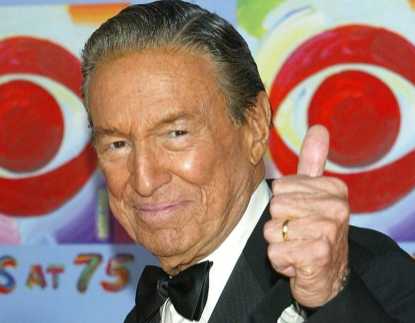
FROM MY FILES FRIDAY: When my son became ill, I thought about who I knew with clout who could help us. Legendary newsman Mike Wallace, who struggled with his own mental illness, immediately responded.
HOW NEWS ICON MIKE WALLACE HELPED MY SON 4/11/2012 USA TODAY
CBS newsman Mike Wallace might be remembered by most as a bare-knuckles broadcast journalist renowned for his tough interviews with the powerful, famous and rich, and a pioneer of the surprise “ambush” interview. But it is an incredible act of kindness to my family that I will always recall.
We didn’t start off as friends.
When I picked up my phone in 1986 and heard, “Hello, this is Mike Wallace of 60 Minutes,” I honestly thought it was a friend’s prank call. At the time, I was writing my first book, Family of Spies: Inside the John Walker Spy Ring.Wallace heard that I was the only reporter who had gotten in to see John Walker, and he asked whether I could help him secure an exclusive interview with the American spy.
Walker hated the news media and had no interest talking about how he had spent 18 years spying for the Soviet Union along with his son, Michael, his brother, Arthur, and his best friend, Jerry Whitworth, all of whom he had recruited as traitors. His arrest in 1985 was the biggest spy scandal since Julius and Ethel Rosenberg were convicted and executed in 1953.
I was flattered that someone as influential as Mike Wallace was calling, and I immediately agreed to help. I got Walker to agree to give Wallace an exclusive for 60 Minutes. While Wallace was interviewing the traitor, they took a break in filming and Wallace called me from the federal prison in Marion, Ill., to check facts. “This is great stuff!” he assured me.
It was great. Wallace’s interview with Walker was mesmerizing. In one memorable scene, Wallace eviscerated Walker by asking him how he could be so heartless as to groom his only son to be a traitor, leaving the arrogant spy speechless. Wallace won an Emmy for that interview, one of 21 Emmys that he collected.
And what of my book and me?
Wallace never mentioned either. He and 60 Minutesbasked in the limelight.
I felt duped.
Then, a second phone call
As fate would have it, Wallace called me again two years later after he read another of my books. I told him that I felt deceived because of how he had handled the Walker story. What happened next shocked me. The powerful Mike Wallace apologized. He explained that he had been going through an extremely tough period in 1986 and that he had done some things he later regretted.
More than a decade later, my college-age son, Mike, was arrested after he developed a mental illness and broke into a stranger’s house to take a bubble bath. I managed to get him into a local mental ward, but his psychiatrist telephoned 24 hours later and said the hospital was going to discharge him in the morning because our insurance company didn’t want to continue paying his bill.
I was desperate, so I faxed a letter to Mike Wallace’s office because he was the most influential newsman I knew. Within 15 minutes, Wallace called and we spent an hour on the phone. I knew he had suffered from clinical depression, but I hadn’t known how ill he’d been.
He told me about how he’d become exhausted by the pressures that he was under at 60 Minutes, especially because of the infamous lawsuit against CBS by Gen. William Westmoreland. CBS had alleged that Westmoreland and others deliberately underestimated Viet Cong troop strength during 1967 in order to maintain U.S. troop morale and support for the war. Wallace mentioned how he talked openly on the air about how he had considered suicide in 1986 — the very year when we met.
He urged me to “have hope,” and then he did something truly incredible. Now that he has died, I can reveal it. At the time, he asked me to keep it private because he didn’t want CBS executives to hear about it. Journalists are not supposed to use their influence to intimidate people.
Mike Wallace called the hospital where my son was a patient. He asked the administrator there why he was discharging my son when his own psychiatrist didn’t think he was ready.
The result: My son wasn’t discharged. He got the help he needed.
A friendship forged
Although he was busy, Wallace telephoned me several times after that to ask about my son. We became friends and, in one of those calls, he mentioned the Walker story and how he had not given my book or me any credit.
He jokingly told me that he had repaid his debt.
I told him that what I had done for him paled in comparison with what he had done for my son and for me.
Mike Wallace was a hero of mine in journalism long before I ever met him. But for those of us with mental disorders or with loved ones who have mental illnesses, he will be best remembered for his courage in speaking out about his own personal struggles with severe depression and suicidal thoughts — and by doing so, fighting stigma and prejudice.



